Should We Rebuild After Natural Disasters?
Unfortunately, we live in a world where natural disasters occur more regularly and with greater intensity than ever before. In fact, it’s estimated that there are approximately 6,800 natural disasters that take place around the globe every single year. Back in 2021, roughly 1 in 10 American homes were directly impacted in some way by natural disasters. Those are startling statistics!
No matter where you live in the United States, there’s no region that is completely immune to natural disasters. Even families that have taken the time to be properly prepared for such emergencies can still suffer a catastrophic loss, as unfair as that may seem. Some of these disasters may be a result of climate change, something everyone seems to be talking about. Others, like a quake, are based on the topography of your surroundings.
Once a disaster has occurred, whether it was due to a hurricane, tornado, earthquake, flood, or wildfire, there are a lot of decisions that a homeowner has to make in a fairly short amount of time since family housing is a critical issue. One of the most obvious is whether to stay and rebuild or leave for someplace safer or where construction costs may be less expensive. Coming up with the right answer may be a bit more difficult than you would think.
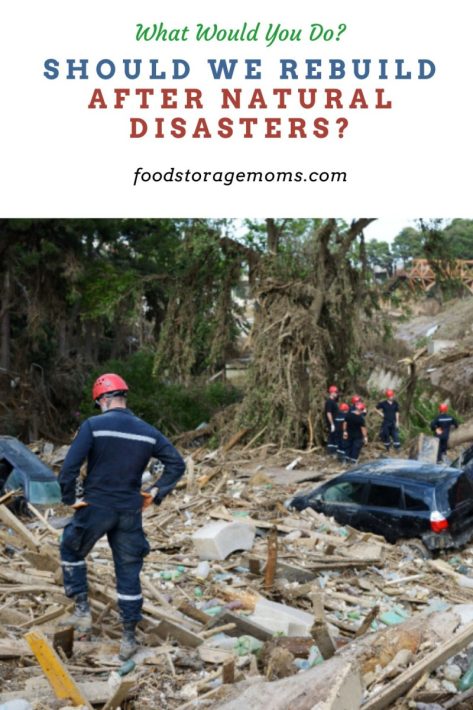
Why People Choose to Rebuild
Based on a recent poll, roughly 66% of Americans would choose to stay put and rebuild rather than move away and start over if a natural disaster were ever to destroy their homes. Let’s take a closer look at several reasons why that may be.
They Grew Up There
It may come as surprise to some of you, but more Americans than naught tend to live in the same general area where they grew up. Right around 70% in fact! In other words, it’s all they’ve known their whole lives, and relocating somewhere across the country simply isn’t an option for most people.
There are areas that people tend to really like, such as being near the ocean and living along or near one of many coastlines. Others feel like being near the water provides recreation, they work in the tourism industry, or they feel the gulf coast regions could possibly be somewhat safer.
It’s What They Know
People want to feel safe and like they belong somewhere. After living in the same place for a while, that person starts to feel a part of their community. As time goes by, besides wanting to be close to family, a person develops friends and other close relationships that mean a lot to them, and they don’t ever want that to change. Moving away from relatives and friends would be extremely difficult.
It’s More Oftentimes Cheaper to Rebuild
This isn’t necessarily always the case, but it’s usually cheaper to rebuild a home following a natural disaster. It’s a huge expense to simply abandon everything and start fresh somewhere else. Plus, if the family had insurance in place, a majority of the rebuilding costs may be covered by their provider, depending on the type and extent of the coverage they have.
This is just a reminder to all of us to make sure we have updated our coverage since homes cost so much more these days.
You know a good builder who you trust and feel comfortable with.
If your home was severely damaged and requires a significant rebuild effort, having the right builder to help and rely on is very important. If your home was damaged, more than likely a bunch of other homes met a similar fate. It could prove difficult to find an available builder, and especially one who will do a quality job without overcharging you or taking too long.
If your location is classified as a disaster area by your state or the federal government, you may be able to get some financial help. There could be an effective referral and monitoring system to make sure you’re protected too. Now is the time, before an extreme weather event or other disaster event happens to check things out and see what your alternatives are and how best to cover your bases.
Resilience and Adaptation
Some people just have it built in them to stay and rebuild. After Hurricane Irma and Hurricane Harvey, many people chose to stay and rebuild their homes based on government agency promises to improve local infrastructure so they’d be better protected in the future.
We saw people stay for restoration after Hurricane Katrina in the New Orleans, Louisiana area and Hurricane Ian in southwestern Florida. In the case of Katrina, the hurricane was so severe that major levees that had been in place for decades were wiped out. Ian brought with it terrible damage from the effects of storm surge as part of the landfall event.
We have friends whose son was living in New Orleans and going to medical school when Katrina hit. The family had to evacuate, but they did come back and make the necessary repairs to their home to make it livable again. Thank goodness it wasn’t completely destroyed.
There have been earthquakes, and tsunamis, in which people decided to stay and do reconstruction on their homes and the city around them. I often wonder if I’d do the same.
Why People Choose to Move On
- Loss of Home: After a natural disaster, many families’ homes may be destroyed or severely damaged and no longer habitable. This forces families to find new places to live even if they would prefer to stay in their hometowns. The fear of it happening again makes the decision an even tougher one.
- Financial Uncertainty: Natural disasters can cause severe economic hardship for affected families who may not have the financial resources to rebuild or repair their homes. In some cases, the cost of rebuilding is unfeasible, leaving families with no other option but to seek relocation.
- Employment Opportunities: The aftermath of natural disasters often leads to job losses as businesses struggle to recover, leaving individuals without income, and relying on government aid or work opportunities elsewhere.
- Health Considerations: Living in an environment that has experienced a disaster may present health risks like contaminated water, air pollution, and contamination of land due to debris and hazardous materials. These could have serious long-term consequences for a family’s health.
- Quality Of Life: Moving away from a town that has been damaged by natural disasters provides an opportunity for families to start fresh in a place that is likely safer and more conducive to their needs. This may mean they can enjoy a better quality of life.
Should you rebuild or relocate after a natural disaster?
The decision of whether to rebuild or relocate after a natural disaster is never an easy one for families. It ultimately comes down to assessing the damage done to their home and property, evaluating the financial implications, considering health risks, and future quality of life.
There also needs to be an understanding of any government or insurance policy issues that could affect their decision. It is important for families to weigh all factors carefully before making the final decision.
What should we do to recover after a disaster?
When it comes to recovering after a disaster, everyone’s situations are different. Some families may choose to relocate and stay with family, others may start rebuilding their lives right where the disaster occurred. Other families may choose to stay and deal with the consequences of life after a natural disaster.
There’s no right or wrong answer to dealing with natural weather events. Residents of a hard-hit town may have too much invested in their current home to relocate. Some people may not have flood insurance, which means they lose everything and are reliant on FEMA (Federal Emergency Management Agency).
More Natural Disaster Tips:
- Natural Disaster Preparedness Tips You Need
- 12 Types of Natural Disasters
- How To Be Prepared After A Natural Disaster
Final Word
Should your family ever be faced with such an unfortunate dilemma, my hope is that the things discussed above for you to consider would make your decision a lot easier. But ultimately, only you can decide which of these two options is best for your situation. What personal experience or other input do you have that would help a hurting family decide whether to rebuild or determine it was time to move on? I’d love it if you would leave a comment down below. May God Bless this world, Linda
Copyright Images: Rescue Service AdobeStock_89931632 By Аrtranq, Hurricane Ian AdobeStock_536821530 By bilanol

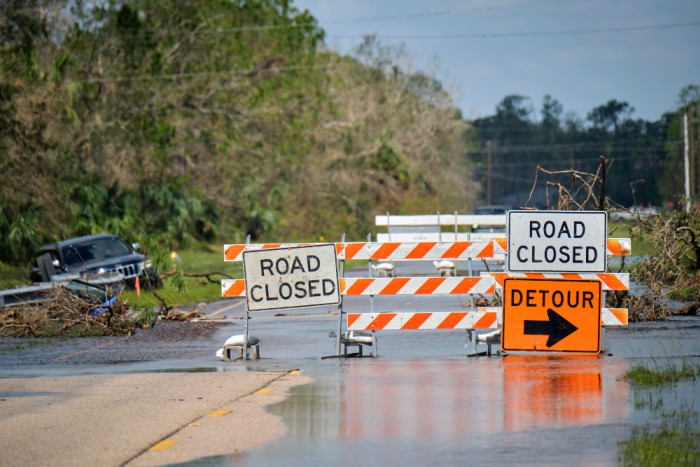


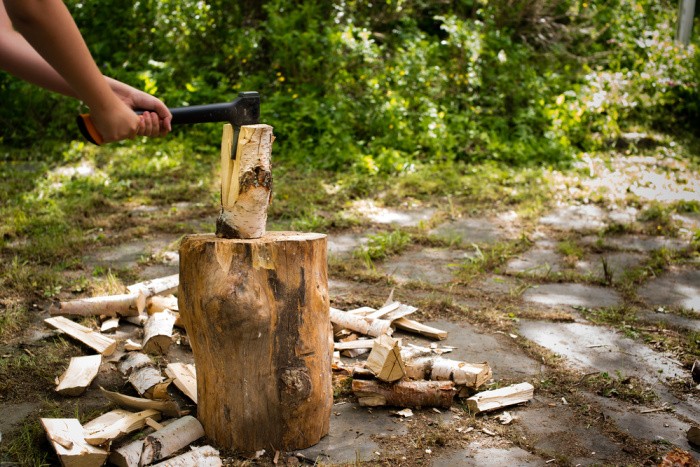
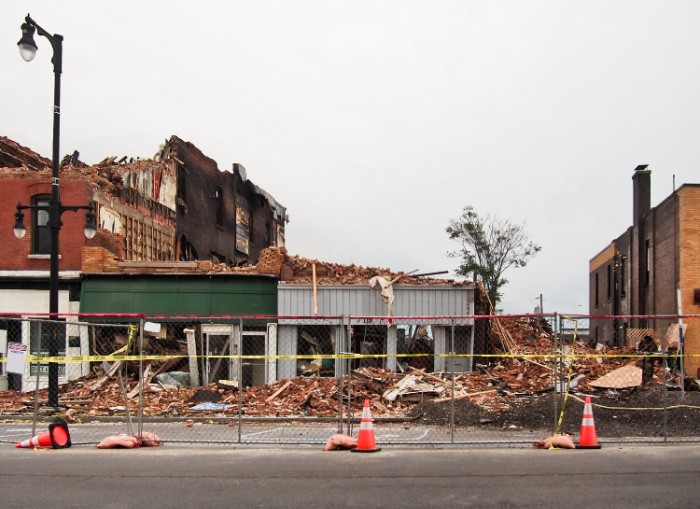
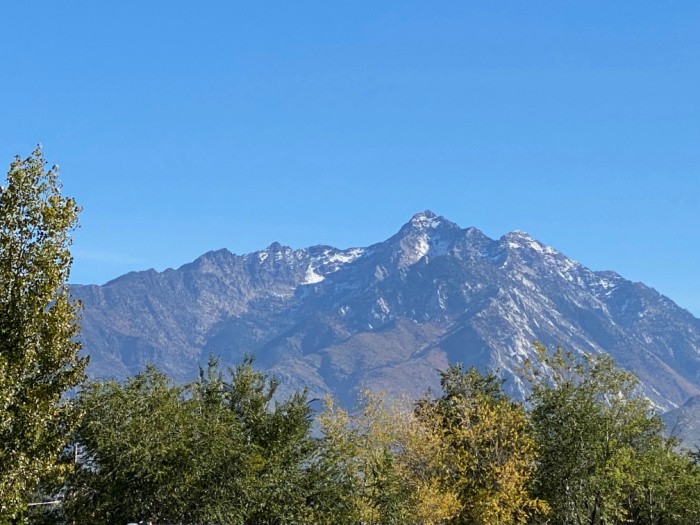
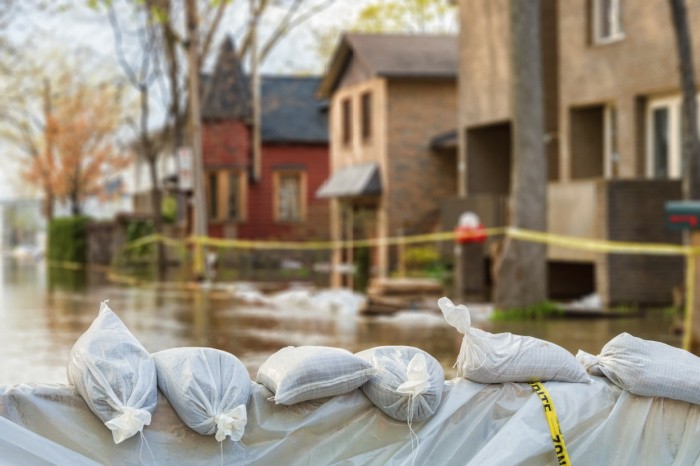
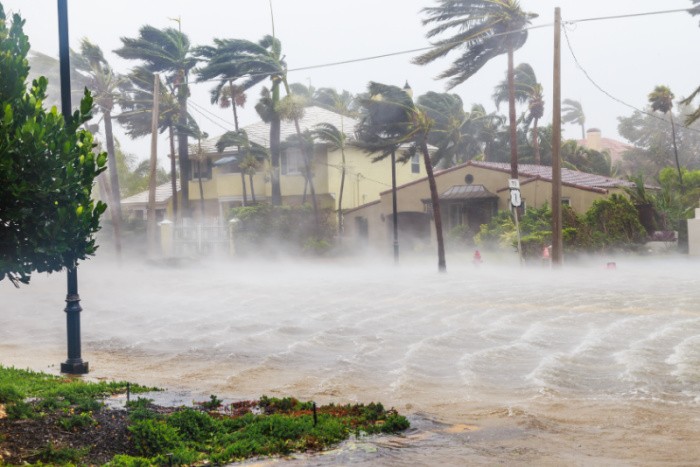
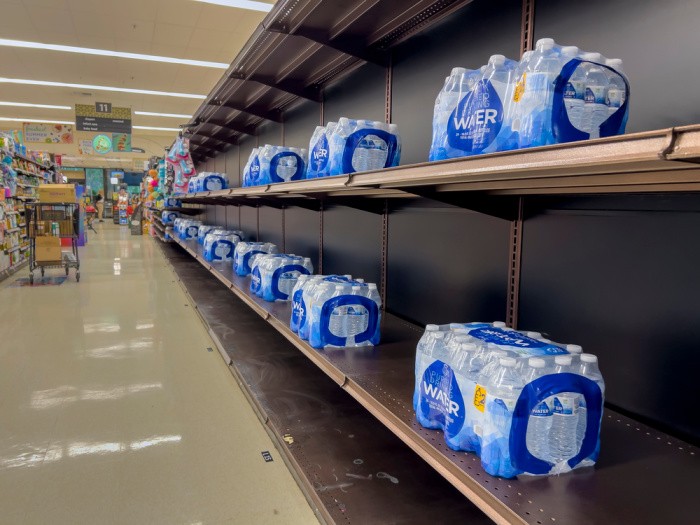



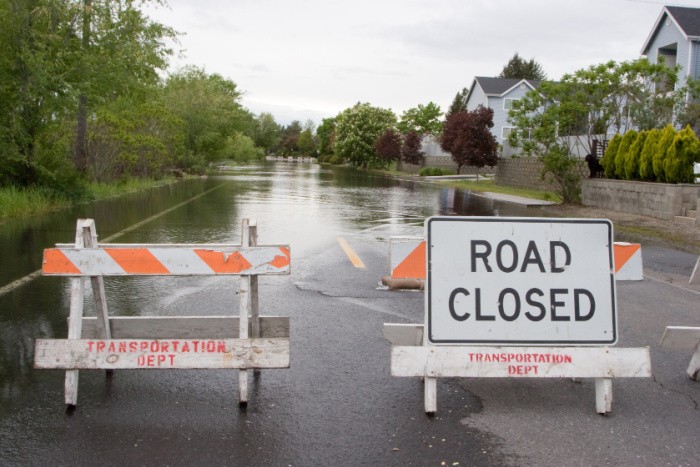

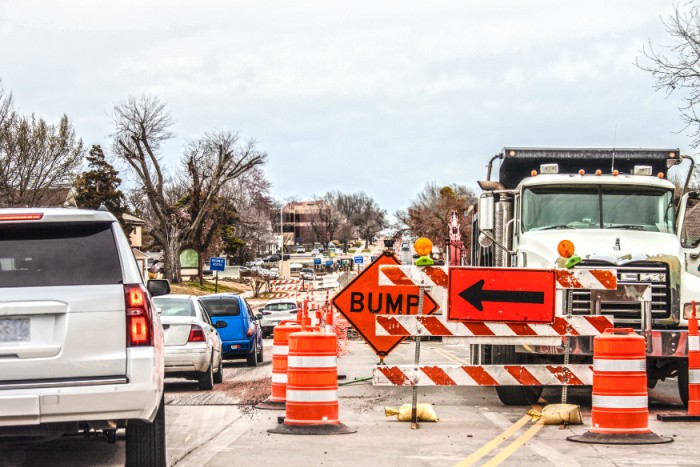

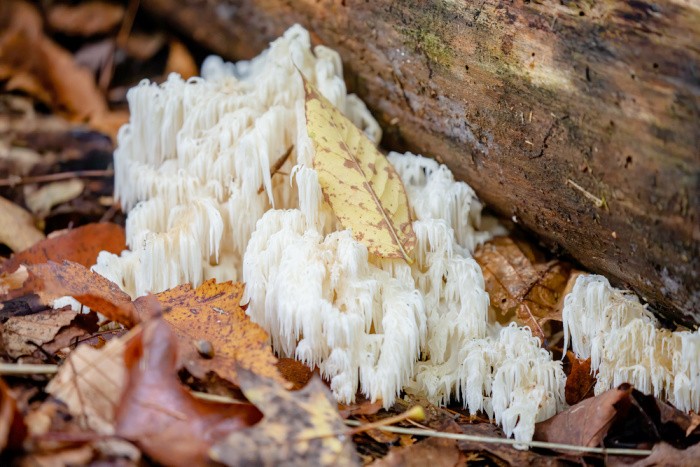
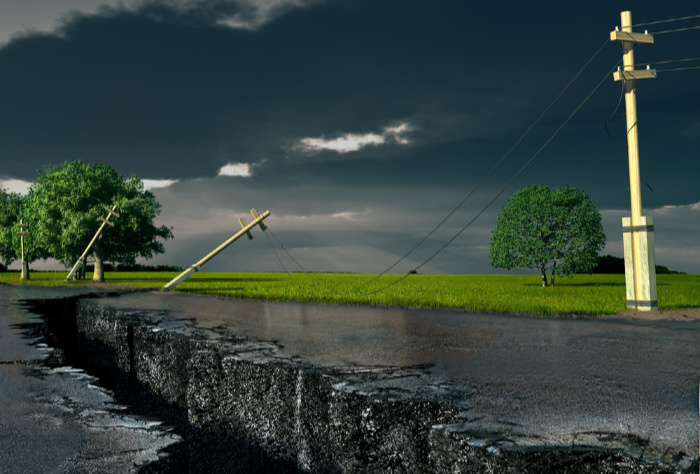
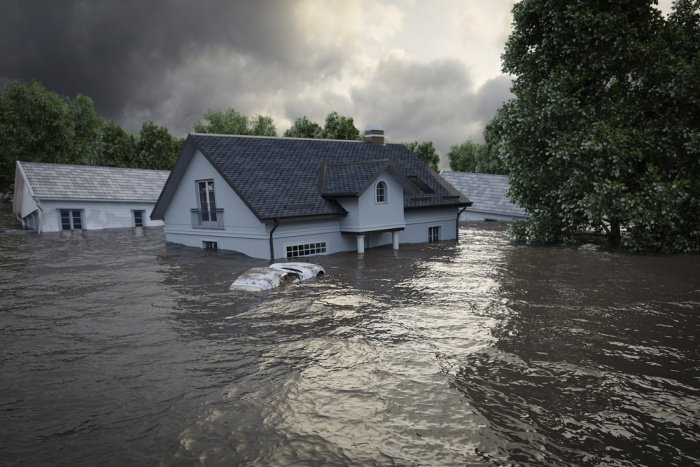



I’m from Oklahoma. We got more natural disasters than anyone else. You gonna live here you need to be tough enough to understand that when ya get knocked down you get back up and get after it. I’m gonna fight till I die. We rebuild and sometimes make it better.
I often laugh and say that tornado hit that trailer park and did thousands in improvements.
Folks here are tougher than woodpecker lips.
Hi Matt, you took the words right out of my mouth! Great comment! I used to say “put your boots back on get it done”! Great things can come out of disasters sometimes it takes longer than we had hoped but life is better sometimes! Linda
Matt has it right. People who live on the coast assume the risk of Hurricanes and flooding. Folks who live inland assume the risk of tornadoes and flooding. Here in AZ we assume the risk of flash floods and we can’t even get flood insurance. People who live in the mountains must realize they face the risk of forest fires. No place is safe from risk and that’s not even getting into the risks of layoffs, plant closings and business relocations that threaten jobs.
A crucial part of being prepared is having insurance to replace what you’ve lost. Another part if being tough enough mentally to pick yourself up and start rebuilding.
HI Ray, man, are you ever right about anything that can happen when we least expect it!!! You need tiliyh to mentally get through it and the strength! Nailed it! Linda
Living in S/W FL it is not just when to rebuild but how to rebuild. Some of our coastal areas got hit pretty bad, the hurricane took out complete city blocks of houses and buildings. People love the quaintness of Fort Myers Beach, Sanibel ETC…but! If you rebuild utilizing stick homes you run the risk of being wiped out the same way next time. People want to rebuild using cement blocks and metal studs and other means, but, others refuse to let them saying it looks like buildings instead of cottages! SO, something to think about and plan for ahead of time and let the city planners and zoning committees know what you think.
HI Bill-Bill, oh I love Sanibel Island, it’s so beautiful!! You are so right about needing to ask the city and country what you can do to rebuild if you need to. They have rules and more rules for a reason. Plus, I think insurance costs would be higher the more damage you have after each storm. I have no idea personally, it’s just a guess. Great comment, Linda
I will admit to not giving a lot of attention to the idea of rebuilding following a disaster, because weather related emergencies have never destroyed our homes. That said, after the past two months, I don’t know how anyone can do it. In November, we had 7 feet of snow during one storm, in December we had the Buffalo Blizzard. This past weekend we had wind chills -15, now this morning, our bed shook and there was a large boom, that sounded like a car had hit our home thanks to a 3.4 earthquake. There was no real damage, except to my nerves. My husband says I have been as jumpy as a long tale cat in a room full of rocking chairs. My heart brakes for anyone trying to start from scratch.
Hi Chris, the last few years there have been some wild and crazy rain, snow, and ice storms. I’ve been through two floods and it took a lot to rebuild those houses that were damaged. I’m not sure they had flood insurance. Earthquakes are scary as well. We’ve had a few small ones in Utah just enough to make the light in the dining room sway back and forth. Where you live the amount of snow and then add the wind chill factor, it’s bad!! Stay safe, Linda